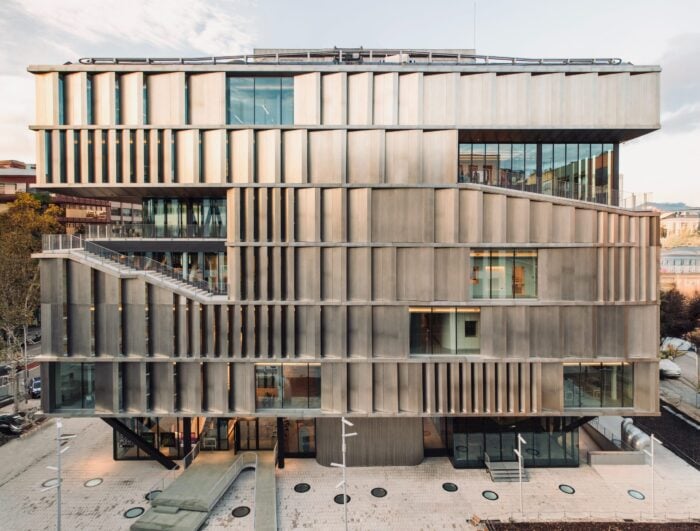
LCI’s campus, one of the most beautiful in the world according to Prix Versailles
The LCI Campus, the School of Design and Visual Arts, located in the Creative District, has been recognized as one… More →
After the success of the project Encara hi ha algú al bosc, Cultura i Conflicte returns to the Teatre Nacional de Catalunya with Moriu-vos. The play, written by Anna Maria Ricart Codina and directed by Joan Arqué, calls for a dignified aging process, reflecting on ageism and questioning the relationship between today’s society and the elderly. Moriu-vos can be seen from the 17th of November to 11th of December at the TNC’s Sala Pequeña and features performances by: Imma Bofarull, Montse Bofarull, Oriol Genís, Arthur Rosenfeld, Magda Puig, Erol Ileri, Piero Steiner / Enric Ases.While the show is on at the TNC, at the foyer of the Sala Pequeña there will be a photographic exhibition display by Oriol Casanovas Puigjané and Marta Garcia Cardellach. The artistic gaze of these two photographers delves into the problems faced by contemporary society towards the elderly, as well as their indispensable role within societies and families. More information here.
The Virgin Mary thinks the human species will soon collapse if we don’t do anything emotionally intelligent. Imma is happily eating her soup; she’s about to receive an unexpected visitor. Oriol doesn’t know that today is the last day he’ll be able to look at advancements like any other pensioner. Montse can no longer dance since she’s been living underwater. And Mochi… oh, Mochi! We want to live to be a hundred years old, but who will take care of us and treat us with dignity, respecting our freedom? Was that it, progress?
“It was an unmitigated triumph. A victory of life over life itself. To live and grow old with dignity. And so… What happened?
We look away from everything that is not blatantly productive or reproductive. An ageist, discriminatory treatment that comes from the ageing of a body. A collapse of the humanism we took for granted. A kind of bullet that we fire at ourselves now, so that it hit us all in a few years’ time. This collapse puts on alert the atavistic senses that we have banished to the highest corners of our grandparents’ bookshelves. A kind of fear of ourselves that makes us reflect on the naive search for meaning. Exercising the memory of the body. Reasoning with the tension of our muscles, the fixed gaze and the gesture that unites: survival instinct and chaos. Writing about who we used to be. Looking to restore the first order of all things. From when we were just people.